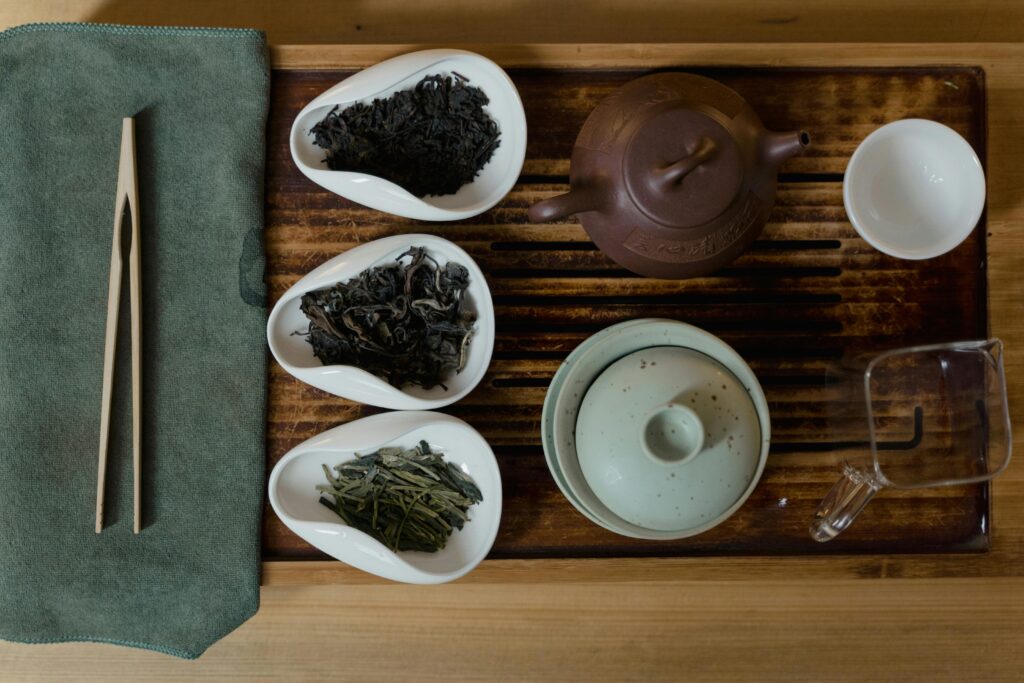Introduction
When most people think about tea, green and black are the first that come to mind. Yet, nestled between these two classics lies oolong tea, a traditional Chinese beverage with a flavor profile and health benefits all its own. With its semi-oxidized nature, oolong combines the fresh, grassy notes of green tea with the deep, bold richness of black tea, creating a drink that is as delightful as it is health-promoting. Beyond taste, oolong tea offers a fascinating array of wellness benefits that science is continuing to uncover.
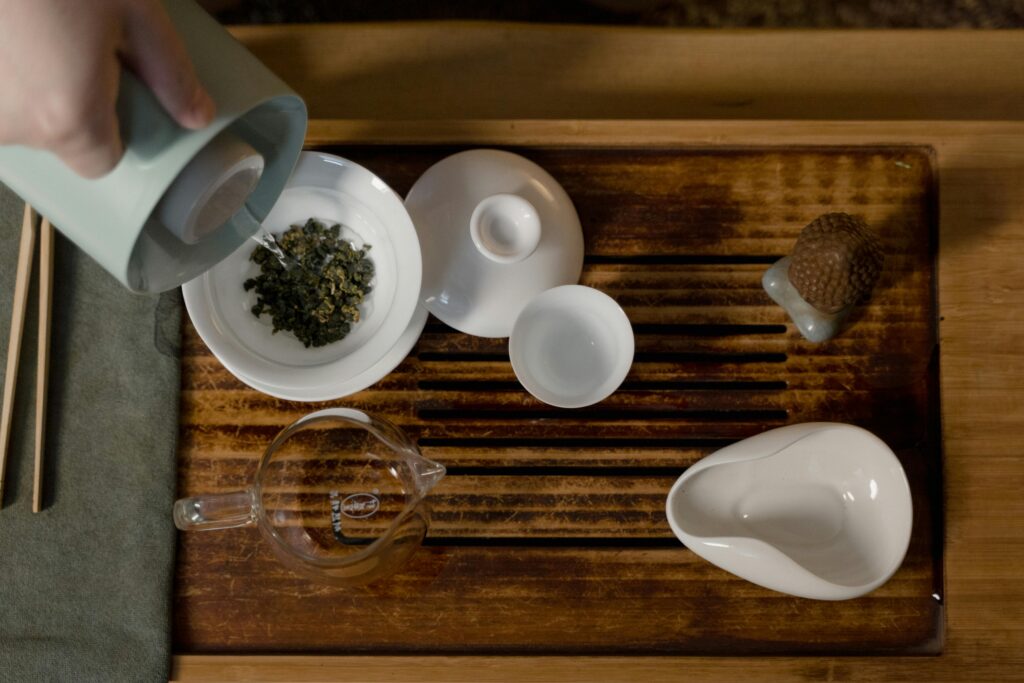
What Is Oolong Tea?
Oolong tea comes from the same Camellia sinensis plant as green and black tea, but what sets it apart is its unique level of oxidation. Whereas green tea is minimally processed and black tea is fully oxidized, oolong falls right in the middle. This partial oxidation process gives oolong its distinct flavor, ranging from floral and fruity to earthy and roasted, depending on how it is crafted.
Because of its complexity, oolong has been cherished for centuries in Chinese culture, not just as a beverage but as a practice of mindfulness and tradition. Today, it’s becoming increasingly popular worldwide, especially among tea drinkers looking for a healthy alternative to coffee or sugary drinks.
Health Benefits of Oolong Tea
Supports Weight Management and Metabolism
One of the most popular reasons people turn to oolong tea is its ability to help with weight control. Research has shown that drinking oolong can increase energy expenditure — meaning your body naturally burns more calories throughout the day. Additionally, it enhances fat oxidation, making it easier for the body to break down fat as fuel.
This makes oolong an excellent companion for anyone following a weight management plan. Some even recommend enjoying a cup before a workout to get an extra metabolic boost. Unlike fad diets, oolong tea supports weight balance in a sustainable and natural way.
Promotes Heart Health
Heart disease remains one of the leading health concerns worldwide, but studies suggest that regular consumption of oolong tea may help reduce some of these risks. The polyphenols in oolong have been linked to lowering LDL cholesterol, improving blood circulation, and reducing inflammation within the arteries.
While oolong isn’t a substitute for medical treatment, incorporating it into your lifestyle may contribute to better cardiovascular health over time, especially when paired with a balanced diet and active lifestyle.
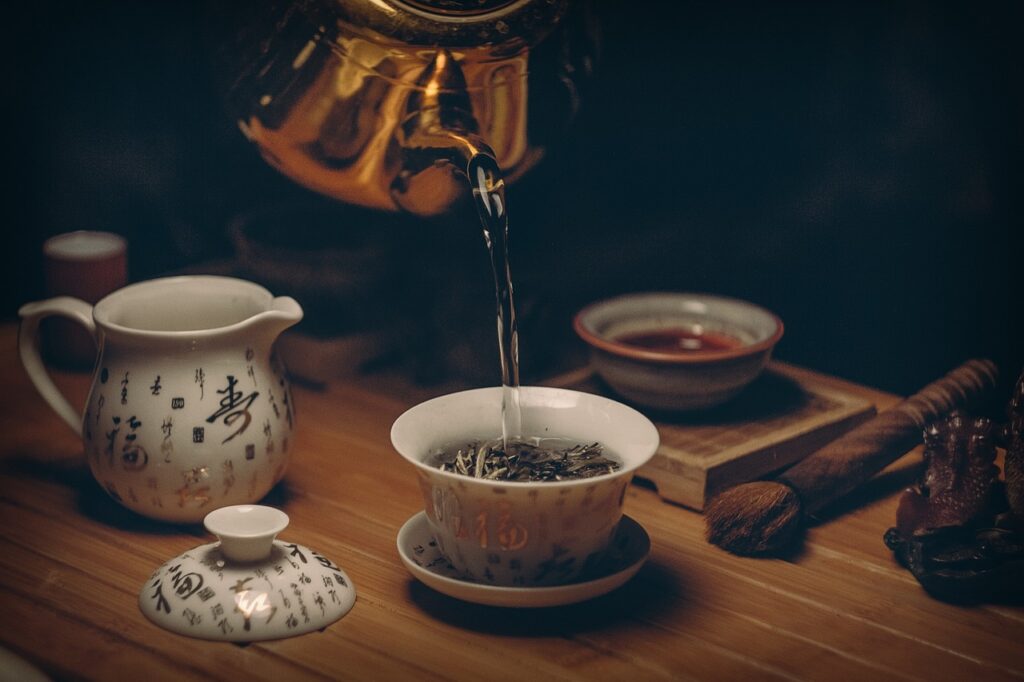
Enhances Focus and Mental Alertness
Unlike the jittery buzz from coffee, oolong tea provides a gentle boost of energy thanks to its moderate caffeine content. It sharpens focus and concentration, making it a perfect beverage for work or study sessions. Many tea drinkers report feeling more productive and less mentally fatigued after enjoying a cup.
Oolong’s antioxidants also contribute to brain health, potentially supporting memory and learning ability. This makes it not just a pick-me-up, but also a long-term ally for cognitive wellness.
A Rich Source of Antioxidants
Another key benefit of oolong tea is its impressive antioxidant profile. Packed with polyphenols and catechins, oolong helps fight oxidative stress, which is linked to aging and chronic diseases. Regular tea drinkers often notice improvements in their skin health, with a clearer complexion and a natural glow.
These antioxidants act as protectors at a cellular level, helping your body stay resilient against everyday stressors like pollution, poor diet, or lack of sleep.
Helps Balance Blood Sugar
For those looking to stabilize blood sugar naturally, oolong tea may offer support. Studies suggest that it can reduce post-meal blood sugar spikes and improve insulin sensitivity. While it should not replace prescribed medication, oolong can be a complementary lifestyle habit for people aiming to manage glucose levels more effectively.
Strengthens Teeth and Bones
Beyond internal health, oolong tea also benefits physical structure. Its content of fluoride, calcium, and magnesium supports dental health, strengthening tooth enamel and reducing the risk of cavities. Long-term drinkers may also experience improvements in bone density, offering protection against conditions like osteoporosis.
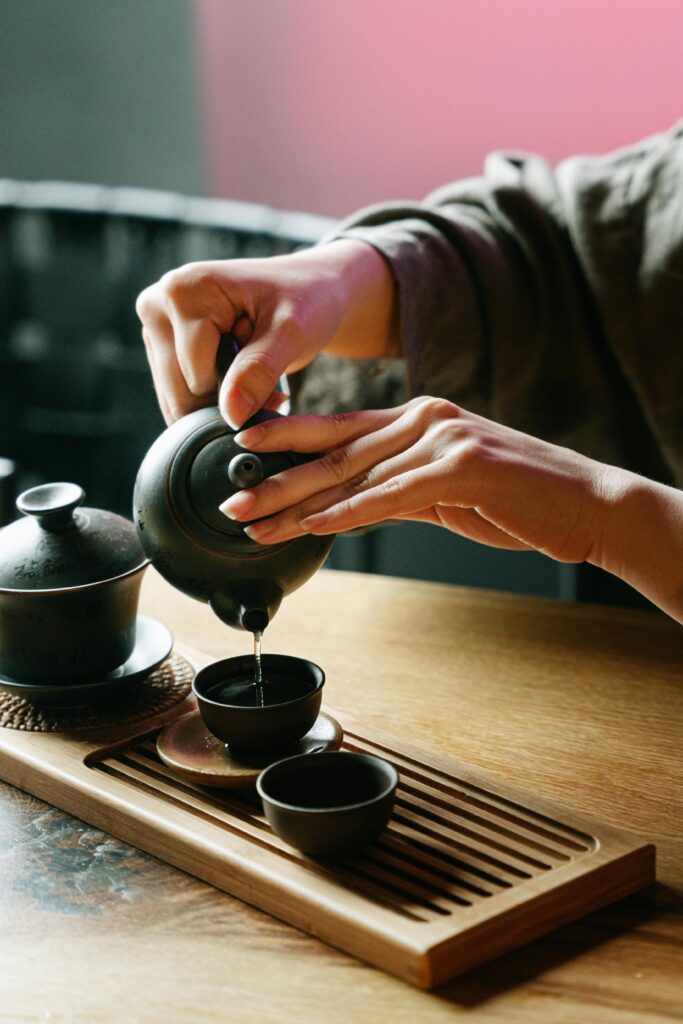
Oolong Tea vs. Green and Black Tea
Oolong is often described as the perfect “middle ground” between green and black tea. It has more caffeine than green tea but less than black, making it an excellent choice for those who want energy without over-stimulation. Flavor-wise, oolong offers depth and complexity that green tea lacks, but without the heaviness sometimes associated with black tea.
This balance is what makes oolong unique — you get the antioxidant power of both ends of the spectrum, in a single, delicious cup.
How to Brew Oolong Tea
Brewing oolong is as much an art as it is a science. To get the most from your cup:
- Heat water to 185–205°F (85–96°C), just below boiling.
- Use 1 teaspoon of loose leaves per cup.
- Steep for 3–5 minutes.
- Re-steep the leaves up to three times; many tea lovers say the second infusion is the best.
If you’re new to oolong, you can find high-quality tea bags and loose-leaf options on Amazon, making it easy to start exploring this tea’s variety of flavors and health perks.
Possible Side Effects
Like most teas, oolong is safe for most people, but moderation is key. Because it contains caffeine, excessive consumption may cause jitters, insomnia, or rapid heartbeat in sensitive individuals. It can also slightly reduce iron absorption if consumed in large quantities. Pregnant or breastfeeding women should consult a doctor before adding oolong to their diet.
Helpful Links for Further Reading
If you’d like to explore more about the health science behind oolong tea, here are a few authoritative resources:
- Medical News Today provides an overview of oolong’s health benefits, including its role in weight and heart health.
- WebMD breaks down oolong’s effect on metabolism, blood sugar, and general wellness.
- PubMed offers scientific insight into how oolong tea impacts fat metabolism and weight management.
Conclusion
Oolong tea is more than just a tasty beverage; it’s a wellness ally that blends the best of green and black tea. From supporting metabolism and heart health to boosting focus and protecting against aging, it has earned its place as one of the most valuable teas in the world.
Adding oolong tea to your daily routine is a simple yet powerful step toward a healthier lifestyle. Whether you’re drinking it for its flavor or its wellness perks, this tea has something to offer everyone.
👉 Ready to try? Explore premium oolong tea options on Amazon and start enjoying its balance of taste and health benefits today.
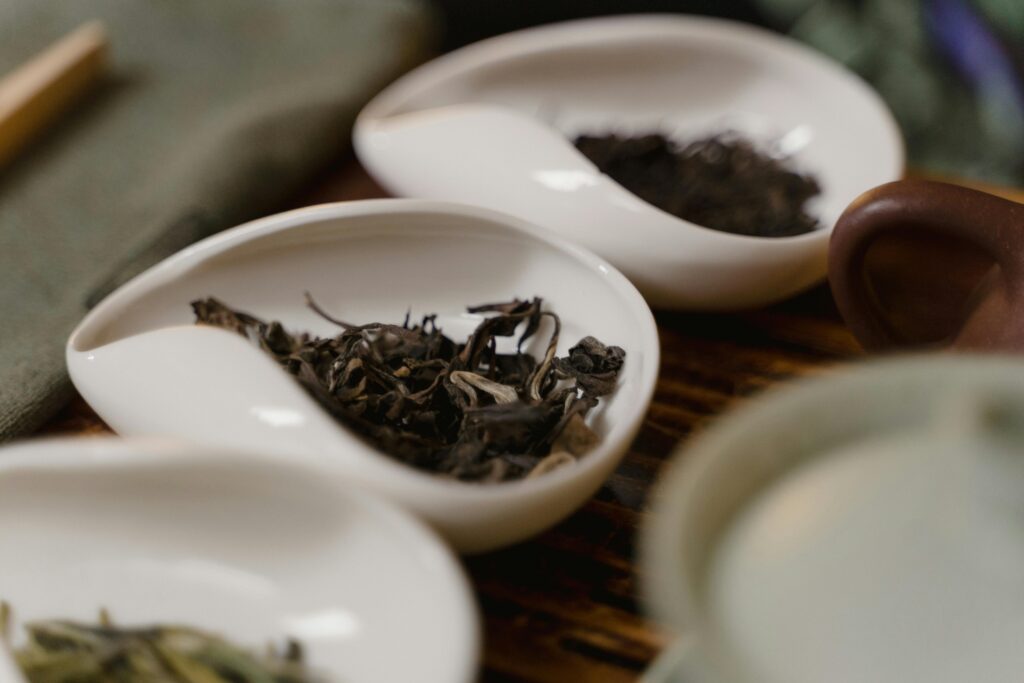
FAQ – Oolong Tea Benefits
Does oolong tea help with weight loss?
Yes. It boosts metabolism and fat burning, especially when paired with a healthy lifestyle.
Is oolong better than green tea?
Not better, just different. Oolong provides a unique balance of antioxidants and a smoother taste.
How much should I drink daily?
1–2 cups per day are generally safe and effective for health benefits.
Can I drink it at night?
It does contain caffeine, so it’s best enjoyed in the morning or afternoon unless you are caffeine-tolerant.
Is it safe for pregnant women?
Yes, in moderation, but always consult a healthcare provider first.
Disclaimer
This article is for informational purposes only and should not be taken as medical advice. Herbal teas, including oolong, may interact with medications or existing health conditions. Always seek advice from a healthcare professional before adding new teas or supplements to your daily routine.

